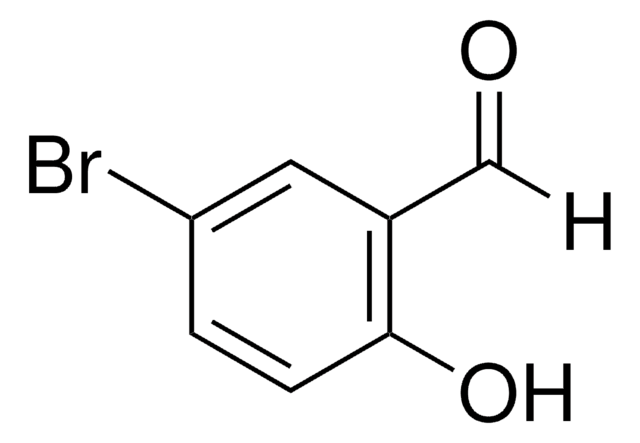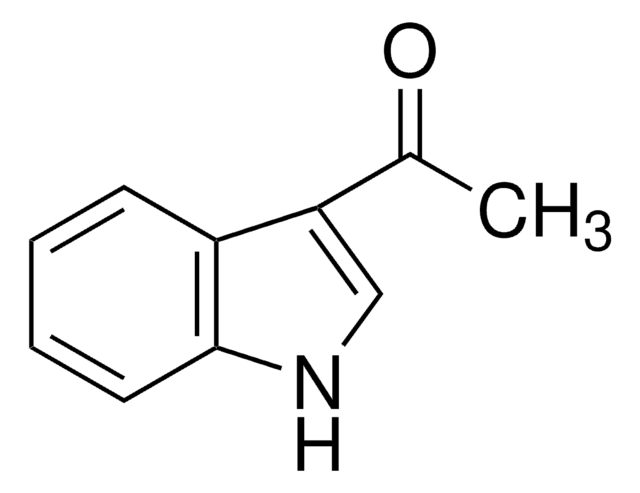A21401
4-Acetylpyridine
97%
Synonym(s):
Methyl 4-pyridyl ketone
Sign Into View Organizational & Contract Pricing
All Photos(1)
About This Item
Empirical Formula (Hill Notation):
C7H7NO
CAS Number:
Molecular Weight:
121.14
Beilstein:
107629
EC Number:
MDL number:
UNSPSC Code:
12352100
PubChem Substance ID:
NACRES:
NA.22
Recommended Products
Quality Level
Assay
97%
form
liquid
refractive index
n20/D 1.529 (lit.)
SMILES string
CC(=O)c1ccncc1
InChI
1S/C7H7NO/c1-6(9)7-2-4-8-5-3-7/h2-5H,1H3
InChI key
WMQUKDQWMMOHSA-UHFFFAOYSA-N
Looking for similar products? Visit Product Comparison Guide
Signal Word
Warning
Hazard Statements
Precautionary Statements
Hazard Classifications
Acute Tox. 4 Oral
Storage Class Code
10 - Combustible liquids
WGK
WGK 3
Flash Point(F)
219.2 °F - closed cup
Flash Point(C)
104 °C - closed cup
Personal Protective Equipment
dust mask type N95 (US), Eyeshields, Gloves
Choose from one of the most recent versions:
Already Own This Product?
Find documentation for the products that you have recently purchased in the Document Library.
Y Imamura et al.
Journal of biochemistry, 125(1), 41-47 (1999-01-09)
An enzyme responsible for the ketone-reduction of 4-benzoylpyridine (4BP) was purified 350-fold to homogeneity from the cytosolic fraction of rabbit heart. The purified enzyme exhibited a molecular mass of 110 kDa on gel filtration, and 27 kDa on SDS-PAGE, indicating
A Hall et al.
Neuroscience letters, 85(1), 110-112 (1988-02-15)
4-Acetylpyridine, earlier reported by us to be an anticonvulsant, offers long-lasting protection after a single administration against hypothermic restraint stress-induced gastric ulceration in mice. Electroshock convulsions, marginally but not significantly protective against such ulcers themselves, when coupled with 4-acetylpyridine administration
Y Imamura et al.
Biochemistry and molecular biology international, 31(6), 1105-1110 (1993-12-01)
Carbonyl reductase from rabbit kidney was rapidly inactivated by diethylpyrocarbonate (DEPC). A similar inactivation was observed in photooxidation of the enzyme by methylene blue. The inactivation by DEPC was time- and concentration-dependent and followed pseudo-first-order kinetics. The results obtained from
S G Zhu et al.
Brain research, 481(2), 356-360 (1989-03-06)
Measurements of striatal choline acetyltransferase (ChAT) and glutamic acid decarboxylase (GAD) activities indicated that systemic administration of 4-8 mg/kg of MK-801 to rats completely blocked neuronal damage due to intrastriatal injections of 75-150 nmol of quinolinic acid. Similar experiments with
A Topacli et al.
Spectrochimica acta. Part A, Molecular and biomolecular spectroscopy, 57(7), 1385-1391 (2001-07-12)
The normal coordinate analysis has been performed for 4-aminopyridine (4-apy) assuming C2v molecular symmetry. A Urey-Bradley force field has been used. The force constants are adjusted to fit the observed frequencies for 4-apy and its deuterated species. The vibrational assignment
Our team of scientists has experience in all areas of research including Life Science, Material Science, Chemical Synthesis, Chromatography, Analytical and many others.
Contact Technical Service









